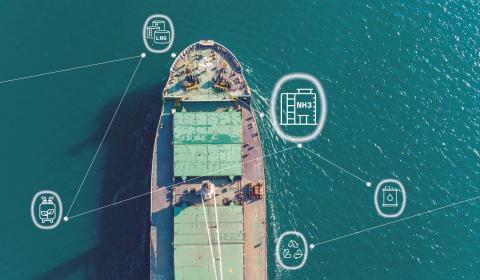
New year, new ES-TRIN
ES-TRIN 2021 contains provisions for approving equipment and installation, as well as installation companies and technical services concerning inland navigation vessels. As of the beginning of 2022, both the Rhine Rules and the European Directive[1] now refer to ES-TRIN 2021.
What’s new in ES-TRIN 2021?
The extensive amendments that have come into effect under ES-TRIN 2021 deal with a broad array of subjects, from portable fire extinguishers to lithium-ion accumulators. Further transitional provisions cover areas including LNG bunkering and waste water collection and disposal facilities, all geared towards making inland navigation vessels (INVs) safer and greener.
Where can I find out more about ES-TRIN 2021?
To ensure transparency and to help INV owners, operators and builders to get to grips with this new Standard, CESNI has made several resources publicly available. A database lists the subjects to which CESNI/PT, the dedicated Working group for technical requirements, has responded. CESNI has also launched a website to facilitate exchanges between members on approval awarded at national level. An FAQ has been developed by CESNI and EUROMOT to help sector stakeholders understand engine requirements and align with both NRMM and ES-TRIN 2021. Finally, CESNI has published a leaflet outlining pilot projects with alternative fuels and innovations that will support the sustainable development of the Inland fleet in Europe.
Supporting progress with experience
With a wealth of experience, and as a trusted classification partner for the Inland Navigation sector, Bureau Veritas (BV) supports the industry on an operational and regulatory level. As well as helping vessel owners and operators achieve compliance, we have also been collaborating with CESNI’s working groups to move European regulation forward. BV also lends its insight and expertise to various European states as the delegated society for performing classification and inspections according to EU and Rhine directives.
By working hand in hand with regulators, we can help ensure a derisked pathway to a greener and more innovative inland navigation sector.
[1] The Rhine Vessel Inspection Regulations and the Commission Delegated Regulation (EU) 2021/1308










